Posted on 5/25/2021
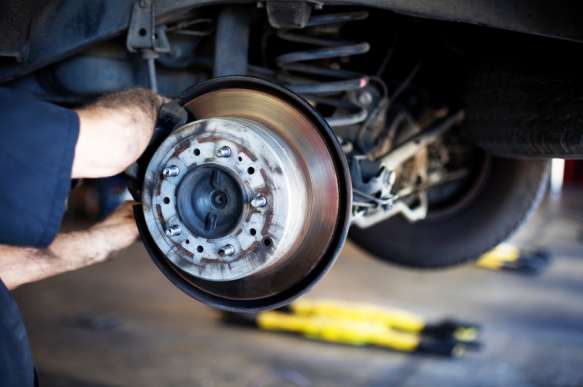
Disc brakes are called disc brakes because of the big metal disc – or rotor – that spins with the wheel. The brake pads rub against the rotor to slow the vehicle. In technical terms, the motion energy of the moving vehicle is transferred into heat energy by the brakes. The job of the rotor is to absorb that heat and dissipate it into the atmosphere. To do that effectively, the rotor needs a certain amount of mass (measured by the thickness of the rotor) and a good surface to mate with the brake pads. Let’s talk about those two things. First is the thickness. A new rotor is nice and thick. It can absorb a lot of heat and dissipate it effectively. Over time, the rotor will wear away slightly. If it wears away too much, there is not enough metal to take care of this heat transfer and the vehicle will not brake as well. In fact, each rotor is stamped with the minimum thickness the rotor must have. When the ... read more
Posted on 4/26/2021
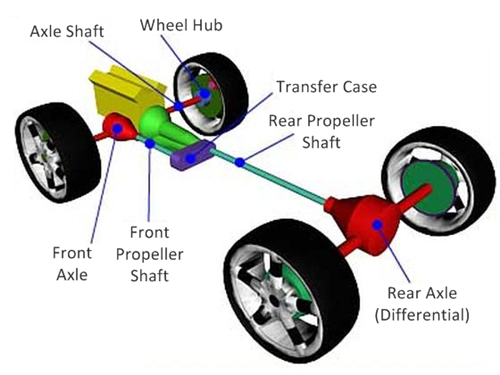
Answer: On a four-wheel-drive (4WD) vehicle, power needs to be transferred to both the f ront and rear axles. The transfer case is the mechanism that makes that happen. There are many drivetrain configurations out there, so we’ll just talk in generalities. Trucks and larger SUV’s are often primarily rear-wheel-drive. When the driver (or the vehicle’s computer) selects 4WD, the transfer case also sends power to the front axle. The transfer case may also contain an additional gear set for off-roading. The transfer case is lubricated and cooled by special gear oil. Over time, the oil gets contaminated and needs to be changed, just like your engine oil and transmission fluid. Your vehicle manufacturer will have a schedule. Your service advisor can help. Now many vehicles have all-wheel drive (AWD). AWD vehicles are often based on a front-wheel-drive or rear-wheel-drive vehicle with the addition of a center differen ... read more
Posted on 3/25/2021
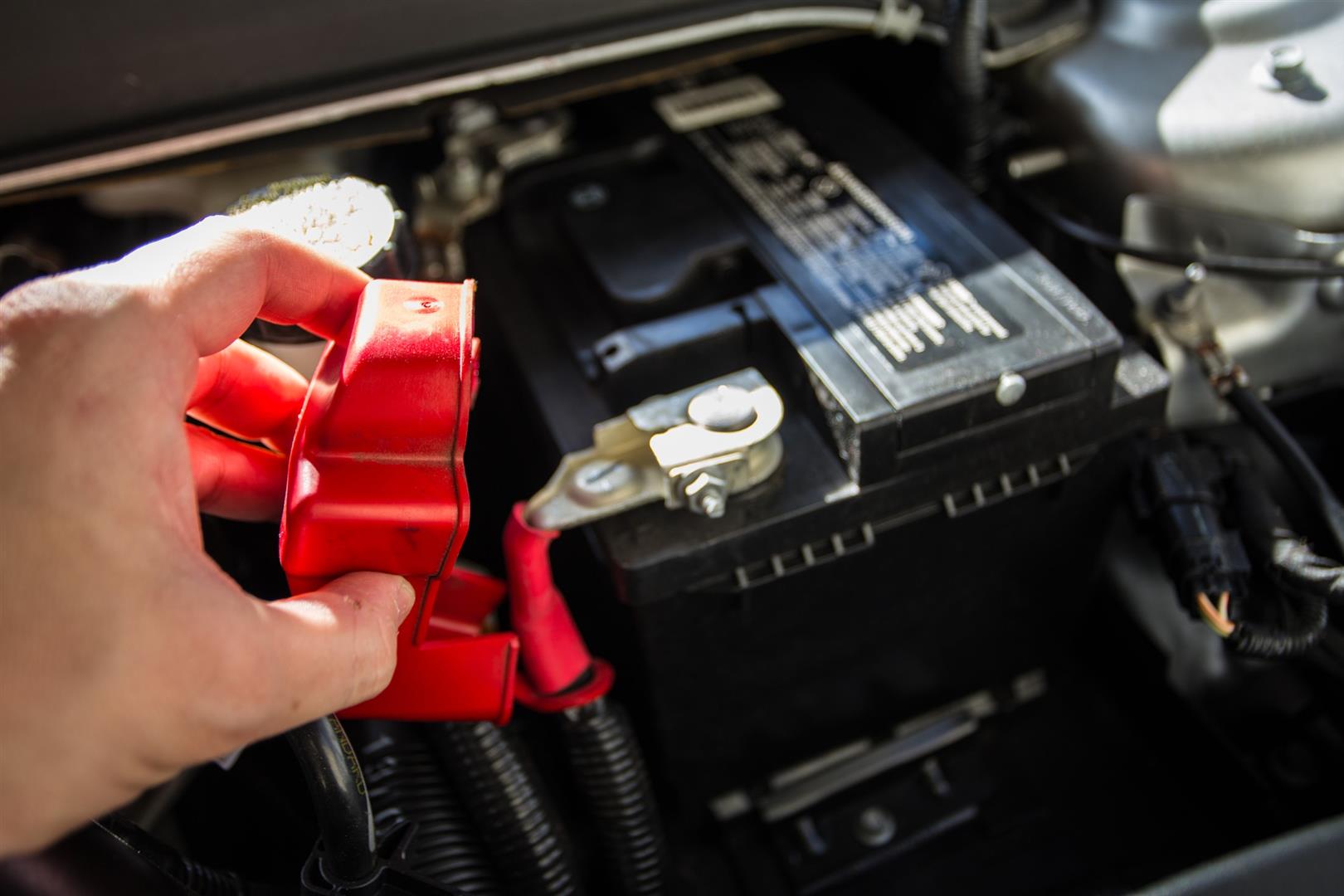
Chances are you've had the power go out in your neighborhood at some time, and you know how helpless you feel. No lights, no microwave oven, no cold refrigerator: Yikes, it's like living in another century. Well, your vehicle is also highly dependent on having power for it to run properly. When your battery cables are failing, that power is not transferred as it should be. Battery cables are essentially the wires that connect your vehicle to its battery. The positive cable supplies the power to various components that use them and the negative grounds the system to the vehicle chassis. This setup allows you to have power throughout your vehicle. When a battery cable fails, your vehicle may not start, your starter may turn over very slowly, or you may hear a clicking noise. And you may see your battery warning light go on. Just like a house with no power, a vehicle with no power needs to get it back for things to work the way they sho ... read more
Posted on 2/25/2021
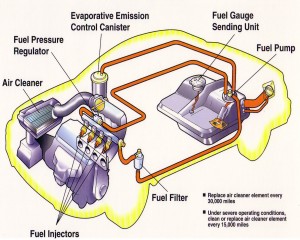
Answer: Well, the dirtier your fuel system is, the bigger the improvement you’ll see in performance and fuel economy. But don’t wait until your engine is running poorly, you’ve wasted hundreds of dollars in gas or maybe even damaged your fuel injectors and catalytic converter. Look, gasoline is a petroleum-based product and will leave some residue, gum and varnish along the way. Some of that can find its way into your fuel injectors and interfere with their job. The fuel injectors do just that – inject fuel into your engine. They spray a precise amount of fuel, at a precise time, in a precise pattern, at a precise pressure. When they are dirty this precision just isn’t possible. So, your engine can run rough. Also, carbon deposits build up on valves and in the combustion chamber. Fuel economy suffers and performance is degraded. These poor conditions allow excess unburned fuel to pass out thro ... read more
Posted on 10/1/2020
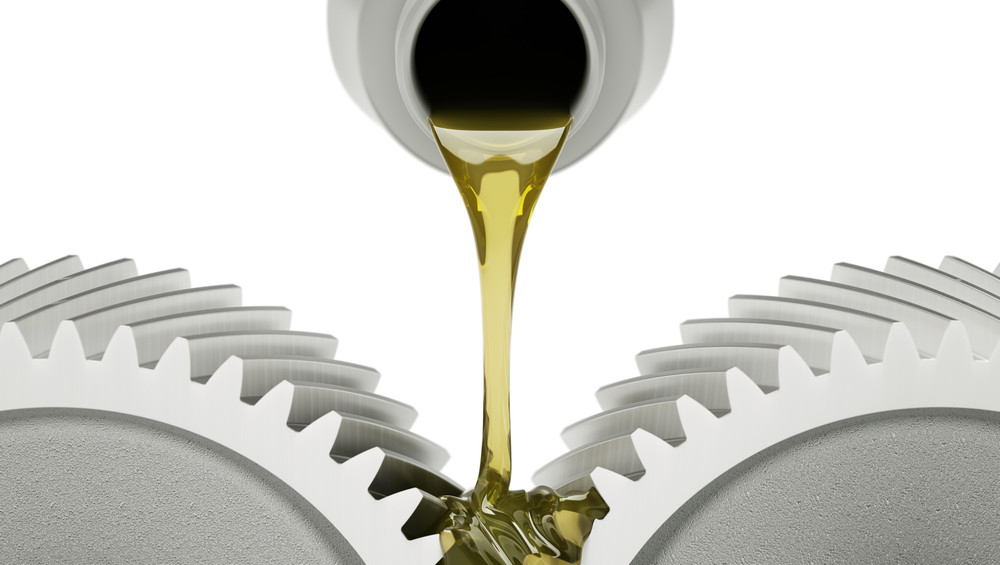
Heard of synthetic motor oil but would like to learn more information? Well, synthetic motor oil is a substitute for conventional oil. Synthetic doesn’t gel or gum-up like conventional oil and it doesn’t vaporize as easily. It protects better in severe driving conditions like stop and go driving as well as in very hot or very cold conditions. More and more new vehicles are being delivered with full synthetic motor oil – with the recommendation to use synthetic for the life of the vehicle. Why is this? Synthetic motor oil maximizes engine power and fuel economy. To see why we’d need a microscope, so we’ll have to settle for using our imaginations. The molecules of conventional motor oil are long hydrocarbon chains. Synthetic motor oil, on the other hand, has uniform, round molecules. Which is slipperier? – A pile of pencils or a pile of marbles? Synthetic motor oil lubricates better because there&rsqu ... read more
Posted on 9/1/2020
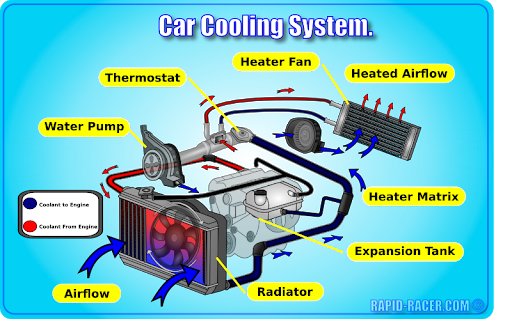
Gilbert drivers often ask questions about the cooling system, the system that cools your vehicle engine and keeps it at the proper operating temperature. Let’s examine the topic in two areas: first, the coolant itself and second, the parts that make up the cooling system. The coolant is the mix of water and antifreeze that circulates through the engine to draw off heat. First, you need to have the proper amount. If you don’t have enough coolant, it can’t keep your vehicle engine cool. You also need the right kind of coolant. Different makes of vehicles require different coolant formulation to protect against corrosion. Finally, your coolant needs to be fresh. Over time and miles of driving, the anti-corrosion additives in the coolant are depleted, and the coolant can actually start to eat away at the vehicle's cooling system parts. Your owner’s manual and your Spectrum Car Care service advisor can help you with ... read more
Posted on 8/18/2020
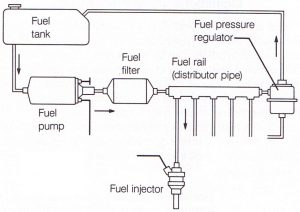
A lot of gas is wasted in dirty fuel delivery systems. Let’s start at the tank. The gas tank gathers of dirt, rust and sediment over the years. That’s why there’s a fuel filter to clean the fuel after it leaves the tank. A dirty filter will rob the engine of the clean gas it needs to run efficiently. The fuel intake components get coated with gum and varnish over time. This results in fuel being delivered inefficiently and some of that gunk getting into the engine. A fuel system service will leave your intake as clean as a whistle. The big fuel thief is dirty fuel injectors. They deliver fuel to the engine at a specified pressure and in a specific spray pattern. When they’re clogged, the fuel doesn’t get atomized the way it’s supposed to and doesn’t get burned as efficiently. See your owner’s manual or ask your service advisor for when fuel system cleaning is recommended
Posted on 4/1/2020
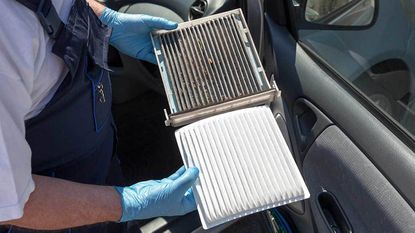
Question: My car has a bad odor when I run the heater or air conditioner. My friend said I might need a new cabin air filter – what's that? Spectrum Car Care Answer: A cabin air filter is a special filter that cleans the air that comes into the Gilbert drivers' passenger compartments – or cabin – of their vehicles. Most new vehicles sold in AZ now have a cabin air filter. A cabin air filter catches dust, pollen, spores and other pollutants before they can get into your cabin. It's kind of like the filter on your furnace in your Gilbert home, cleaning the air you breathe inside your vehicle. As Gilbert drivers can imagine, it eventually gets filled up and can even start to get smelly. So – you just have it replaced. Now some are really easy to access and others are tougher to get to. Your friendly and knowledgeable Spectrum Ca ... read more
Posted on 9/1/2019
Some new are now recommending much higher oil change intervals than they have in the past. As much as 5,000 to 10,000 miles, or 10,000 to 15,000 kilometers, or more. Following these recommendations is very important to avoid engine damage. When Gilbert drivers go too long between oil changes, oil starts to turn to sludge. This causes small oil passages to clog and engine parts to fail. What causes oil sludge? It's a factor of time and mileage. There are hot spots in every vehicle engine that cause oil burn off that leads to sludge. Also, water from normal condensation can build up in the oil. This water also creates sludge. Severe driving conditions in AZ lead to more rapid sludge formation. Severe driving includes short trips around Gilbert or trips in freezing AZ conditions. The engine just doesn't get warm enough for the water in the oil to evaporate. Severe conditions are at the ... read more
Posted on 8/1/2019
Your alternator makes electricity to start and run your engine and all of the electrical systems in your vehicle. That’s everything from the on-board computers to the turn signals. And of course there is the entertainment system, seat heaters, power window, and everything you plug into the power outlets. After your alternator makes enough electricity to do all that, it recharges your battery with what’s left over. When you constantly have a low or dead battery, the alternator is usually a prime suspect. However, the alternator is just one component of the starting/charging system, and a problem with any of the other components could be the actual cause. In addition to the alternator, the charging/starting system includes the battery, starter, serpentine belt system and all of the electrical cables that connect them. Your Spectrum Car Care technician has a systematic process of testing components and connections to get to the source of your problem. The initial symptoms de ... read more